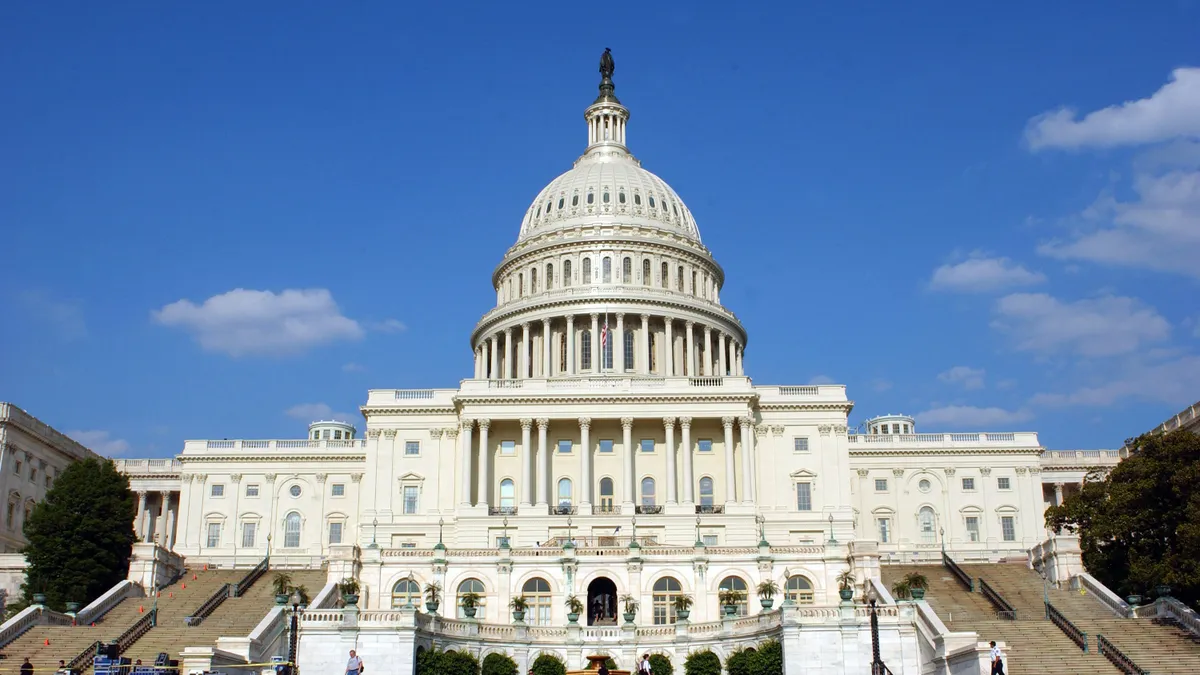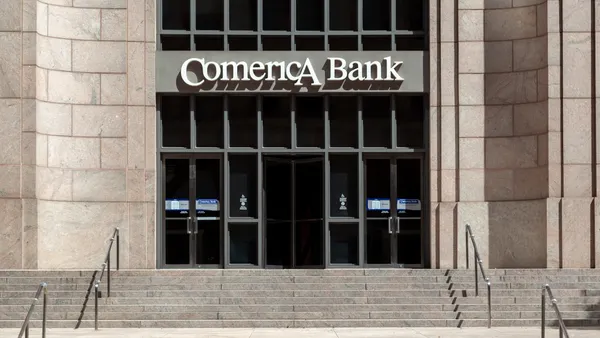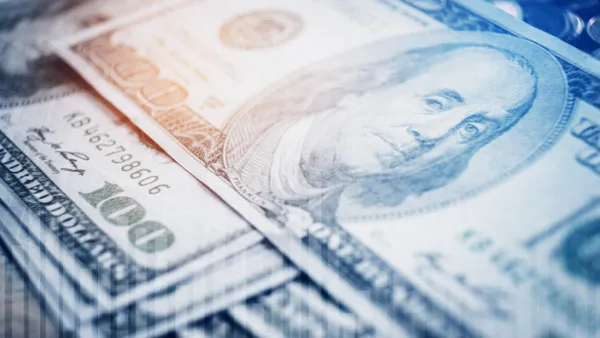Dive Brief:
- Lawmakers debated whether or not the government should intervene to curb the charging of overdraft fees, in a House Financial Services Committee hearing Thursday.
- Legislators were split along partisan lines, with Democrats arguing the fees adversely affect low-income and nonwhite families, and Republicans contending the service poses a valuable alternative to more predatory forms of short-term lending.
- The panel's chair, Maxine Waters, D-CA, on Thursday unveiled a draft of legislation requiring banks with assets of $10 billion or more to offer customers and prospective customers accounts without charges for overdrafts or declined transactions, among other stipulations.
Dive Insight:
As some of the largest banks in the U.S. — Wells Fargo, Bank of America, Citi and Capital One among them — institute sweeping changes to their overdraft policies, lawmakers and advocates are divided as to whether the government should step in to curb the practice among industry holdouts.
"Overdraft fees are paid the most by people who can least afford them," said Elyse Crawford-Hicks, consumer policy counsel at progressive nonprofit Americans for Financial Reform.
"The banking industry should do some soul searching and ask itself, 'What are we to make of the racial inequity and exclusion brought on by overdraft fees?'" Rep. Ritchie Torres, D-NY, said during the hearing. "The imposition of overdraft fees at the expense of the poorest people of color in places like the South Bronx flatly contradicts every notion of equity and inclusion."
The draft Waters issued Thursday would require all banks with $10 billion in assets or more to provide accounts with a number of features, including no-fee debit cards, a minimum opening deposit of less than $25, no overdraft or non-sufficient fund fees, free access to direct deposit and in-network ATMs and a cap of $2.50 on charges for using an out-of-network ATM.
Rep. Carolyn Maloney, D-NY, reintroduced a bill in June meant to combat banks’ ability to levy overdraft charges.
More recently, the Consumer Financial Protection Bureau (CFPB) declared war on "junk fees," including overdraft. The agency said it would focus on combating an emerging "fee economy" that preys on consumers in the banking sector.
Republican legislators, however, contend that consumers benefit from access to overdraft services, and that the government should not interfere with the practice.
"The actions of this committee, of financial regulators, aim to reduce consumers' ability to access short-term liquidity financial products. I ask my colleagues, where are the 40% of American consumers supposed to go when they need a [small-dollar] loan?" Rep. Blaine Luetkemeyer, R-MO, said at the hearing.
Pro-overdraft advocates have stressed the need for choice among a variety of short-term lending options so consumers are not forced to turn to payday lenders.
"Consumers should be able to choose from revolving credit, installment loans, single payment loans, and overdraft protection services," the American Bankers Association told the panel in a statement Thursday.
"The market is naturally, naturally taking care of the issue without government intervention," said Rep. Roger Williams, R-TX. "And we do not need more rules from Washington."











